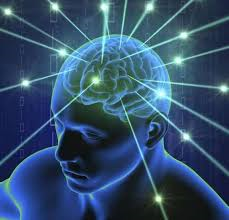
Breaking News
 Tucker Exposes Trump Would-Be Assassin Thomas Crooks' Social Media History, The FBI Coverup...
Tucker Exposes Trump Would-Be Assassin Thomas Crooks' Social Media History, The FBI Coverup...
 This Was A Major Red Flag In 2008, And Now It Is Happening Again!
This Was A Major Red Flag In 2008, And Now It Is Happening Again!
 Trump orders DOJ probe into Epstein's alleged ties with JPMorgan, Clinton and other Democrats
Trump orders DOJ probe into Epstein's alleged ties with JPMorgan, Clinton and other Democrats
Top Tech News
 Blue Origin New Glenn 2 Next Launch and How Many Launches in 2026 and 2027
Blue Origin New Glenn 2 Next Launch and How Many Launches in 2026 and 2027
 China's thorium reactor aims to fuse power and parity
China's thorium reactor aims to fuse power and parity
 Ancient way to create penicillin, a medicine from ancient era
Ancient way to create penicillin, a medicine from ancient era
 Goodbye, Cavities? Scientists Just Found a Way to Regrow Tooth Enamel
Goodbye, Cavities? Scientists Just Found a Way to Regrow Tooth Enamel
 Scientists Say They've Figured Out How to Transcribe Your Thoughts From an MRI Scan
Scientists Say They've Figured Out How to Transcribe Your Thoughts From an MRI Scan
 SanDisk stuffed 1 TB of storage into the smallest Type-C thumb drive ever
SanDisk stuffed 1 TB of storage into the smallest Type-C thumb drive ever
 Calling Dr. Grok. Can AI Do Better than Your Primary Physician?
Calling Dr. Grok. Can AI Do Better than Your Primary Physician?
 HUGE 32kWh LiFePO4 DIY Battery w/ 628Ah Cells! 90 Minute Build
HUGE 32kWh LiFePO4 DIY Battery w/ 628Ah Cells! 90 Minute Build
 What Has Bitcoin Become 17 Years After Satoshi Nakamoto Published The Whitepaper?
What Has Bitcoin Become 17 Years After Satoshi Nakamoto Published The Whitepaper?
Weak electrical field found to carry information around the brain

The team has identified slow-moving brainwaves it says could be carried only by the brain's gentle electrical field, a mechanism previously thought to be incapable of spreading neural signals altogether.
"Researchers have thought that the brain's endogenous electrical fields are too weak to propagate wave transmission," says Dominique Durand, professor of biomedical engineering at Case Western Reserve University. "But it appears the brain may be using the fields to communicate without synaptic transmissions, gap junctions or diffusion."
What led Durand and her team of researchers to this conclusion was the recording of neural spikes traveling too slowly to be carried by conventional means, indicating something else was at play. They claim that the only possible explanation for the passage of information in this way was the presence of a weak electrical field.
The team tested its theory both by way of computer modeling and observing activity in the hippocampus of a mouse brain, the central region associated with memory and spatial navigation.

 A WORLD OF DEBT
A WORLD OF DEBT
 Unbanked In A Connected World
Unbanked In A Connected World

